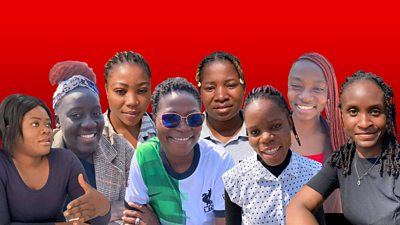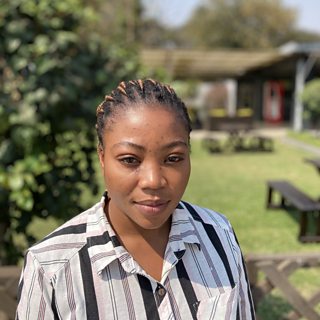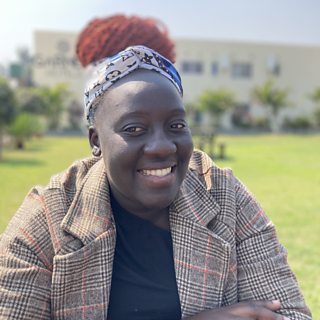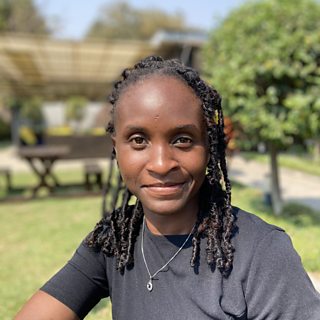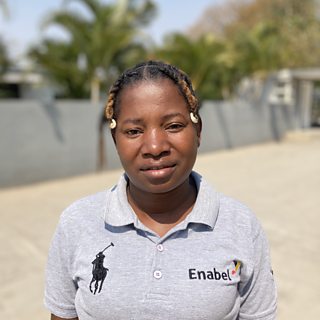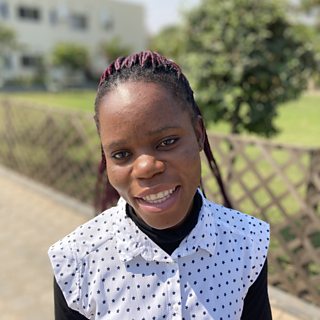The Moto (Fire in Nyanja) Initiative in Zambia supports women journalists to develop skills in public interest journalism and to pursue original stories, including investigative stories.
The 14 participants from the latest cohort, who are drawn from radio and TV outlets across Zambia, recently spent a week together in Lusaka – learning from each other; from colleagues at Free Press Initiative Zambia, our partner organisation; from �鶹�� Media Action trainers; and from the wider �鶹�� – including executive producers in the �鶹�� Africa Eye investigations team.
The workshop included sessions on fact-checking and number-crunching; editorial guidelines related to investigative reporting – on areas such as secret recording, informed consent and anonymity; and personal safety – including risk assessments.
It also included time to listen to, watch and discuss some of the investigative pieces the journalists have already been producing as part of the nine-month programme.
Eight journalists taking part in the Moto mentoring programme have been reflecting on how their work and life have changed, as a result of the project.
“After being part of the Moto programme, I am thinking about research and doing more investigative stories – looking at issues which impact and matter to the public. I feel motivated to bring out the truth, fuelled by my curiosity.”
“T����dzܲ��� Moto, I have learnt about different angles and how to go more in depth on stories. I’ve also become part of a great network of female journalists – who work together and collaborate to bring change.”
“After the first round of training, I produced a piece about how people with albinism in Zambia are being affected by climate change. I submitted it for an award… and it won! Best Media Report on Environment and Health in the Open Spaces Zambia Awards.”
“Before I joined Moto I didn’t really do any community-based stories. Now I feel empowered to do public-interest journalism – finding and fact-checking information to do accurate stories. I am doing a wider range of stories than I used to, including investigative pieces.”
“Before joining Moto I was like a PA or secretary in my radio station – but after being trained by the project I have advanced in my work. I now do proper journalism – including investigative journalism. So, I say: Viva Moto, great job!”
“I’m an untrained journalist: I have been working at my station for four years, but this is the first training I’ve had. So Moto has been a great experience for me. I didn’t know anything about investigations or fact-checking before – but now I am doing those things.”
“Moto has given me the courage to pursue stories I didn’t think I would be able to do. And it’s been such a friendly and supportive environment. The mentors have been there from the beginning to the end of every story – providing moral, emotional (and financial!) support.”
"My journey on the Moto project has been very practical, engaging and career changing. I'm now able to report on pieces that are investigative in nature with the impartiality they deserve."
The Moto (Fire) Initiative is part of the Kudziwa (To Know) project carried out with Free Press Initiative and funded by the Swedish International Development Agency (Sida).
Latest Zambia stories
More stories from ZambiaSearch by Tag:
- Tagged with Zambia Zambia
- Tagged with Media development Media development
- Tagged with Equity, diversity and inclusion Equity, diversity and inclusion
- Tagged with Women and girls Women and girls
